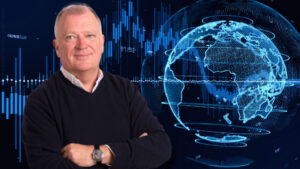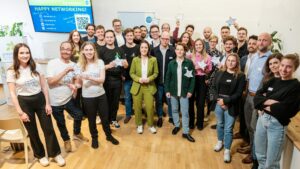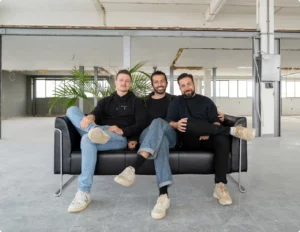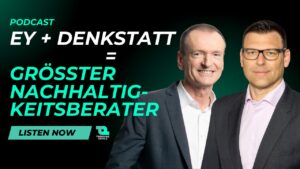Pavel Velkov: My Investment Style Is Risk-Averse. I Prefer Lower Returns With Lower Probability Of Loss
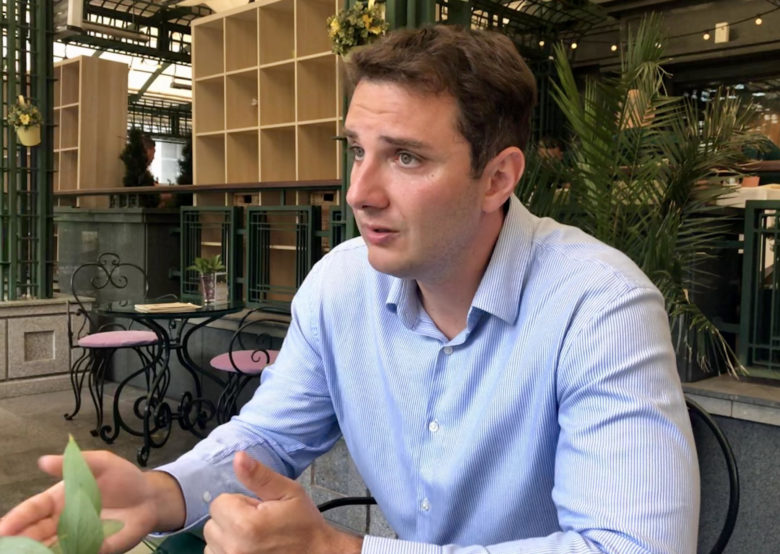
Trending Topics is starting a series of interviews with venture capital, private equity, and angel investors from Bulgaria and Eastern Europe, to better understand their mindset, strategies, and put together a well-rounded picture of the industry as it is today. What should the region invest in, what have the EU funds for venture funds accomplished, are there any gaps, and what could be done better. In the next few months, we’ll interview one investor a week to collect as many perspectives as possible.
Pavel Velkov and his fund Morningside Hill are the new players in the local ecosystem. The domestic investment fund will start supporting scaling companies in the next month or two when it is expected to be completed operational.
Having defended a Bachelor’s degree in Business Administration at The American University in Bulgaria in 2005, Velkov started managing a residential real estate development projects in Nigeria helping his wife’s family. A year after he joined the venture capital world becoming an investment analyst in Global Finance, a Greece-based independent private equity, and venture capital investment firm. This was back in 2007 when the venture capital ecosystem in Bulgaria barely existed.
In 2011, he went to the US and obtained an MBA degree in Columbia Business School. One of his professors, who was a recognized figure in the hedge funds community in New York, had received funding from Julian Robertson, the creator of one of the first hedge funds – Tiger Investment. During the last university year, he invited Velkov to help with the setup of a new investment fund named Totem Point Management. For just a year, Velkov saw how the hedge fund was created from scratch. “It was a very good year, the Assets under management (AUM) rose up very quickly, and I thought I was ready to be independent,” he says. And so, in 2014 the Morningside Hill brand was created.
Velkov was abroad for about nine years and is usually considered as a new player. But back then he worked alongside with few of the people that later helped the ecosystem to grow, and that we know today. While working in Greece-based fund Global Finance, he was a colleague with Ivaylo Simov from Eleven Ventures and the local investor and entrepreneur Valeri Petrov.
We met with Velkov to find out what is the vision behind Morningside Hill and the way someone who was in venture capital in the region ten years ago sees the development.
Trending Topics: Morningside Hill was established in 2014. How have things evolved since then?
Pavel Velkov: We started Morningside Hill as a brand in the US. We have a hedge fund there, that still exists. The fund invests in public ventures, a totally different type of business. It is the same brand, but with different partners. It’s a launch lab, so we can short and have zero restrictions. It’s 100% private capital.
It all happened while studying at a Columbia Business School in New York, doing an MBA degree. One of my professors, who taught applied value investing, was a prominent figure in the hedge funds in New York. He received funding from Julian Robertson, the creator of – Tiger Management, one of the first hedge funds. He invited me to help with the setup of a new investment fund, called Totem Point Management. Being part of it for around a year, I saw how the hedge fund was created from scratch. This was a very good year, the Assets under management (AUM) rose up very quickly, and I thought I was ready to be independent. Later on, I realized that it was very difficult to launch a new fund, one of the reasons being that I didn’t have his reputation. Branching out this early was a mistake. If I had stayed, I would have been better off in the next few years.
What happened?
We started the hedge fund and then I saw that capital raising is extremely difficult. We couldn’t raise much in the first year. It started very slow, by putting in my bonus, which was the start. The business survived, but building it was slow and painful. We ended up with a little over $20M, which makes it probably the smallest hedge fund in the world (laughs).
We could not find a lot of information about the team behind Morningside Hill. How did the partners come together?
Three of us have graduated from the American University in Bulgaria. My wife, Ekaterina Velkova, and Delyan Ganev graduated in the same year. Delyan defended masters in Finance at MIT Sloan School of Management and started working at a mutual fund and then a VC fund. At this point, he invited Ekaterina to join him.
I know Todor Mutafchiyski, who is the fourth partner, from Nigeria, where the family of my wife was working at the time. Together with Nigerian partners, Todor and I established a Nigerian VC Fund.
30% of the funds in your fund come from private capital. Who are the LPs?
We have put only €2.5M at the fund level, the rest are co-investors at the deal stage. This means they can be different in every investment, depending on the type of deal and what investors we can attract. If the deal is in any particular industry, we can attract a strategic investor from the same industry.
We are in negotiations with two different investors – Bulgarian one and a French one. I don’t want to say names yet, it will be public in the next few weeks.
What’s your investment philosophy? What’s the strategy?
I went to the US especially to learn about value investing. This approach entails a conservative look of the investment, builds a discipline to invest with a margin of safety. Therefore, we look at companies with a lower risk threshold.
Throughout the years I embraced this investment style, where I try to get a large margin of safety. Even if many things go wrong, you would still be able to get more money out of it or at least would not lose too much. In this case, you are long an optionality. By defining my approach, I found out that I am risk-averse. I prefer lower returns with a lower probability of a loss. If the businesses are from the “real economy”, you have a better chance for this return to happen.
The goal is to get a minimum of six percent return per year. I try to look at it realistically. Everyone can say 20%, for me this is not realistic. Especially in a regime, where practically interest rates are zero. For the last ten years, the interest rates around the world are zero. The five biggest central banks printed 20 trillion dollars, and it looks like that they would continue printing. This means that interest rates and investment returns around the world will stay low. Тhe fact that in the equity markets you might have some kind of return means you did not realize what the risk was. This money could be gone in the next three days if the market crashes very fast. From this point of view, we are living in a low-return world which most probably would stay this way for a long time. I think it will stay that way for at least five to ten years.
What are the profiles of the companies you would potentially invest in?
Unlike some other funds that got the funds from the European Investment Fund (EIF), we don’t have the possibility to invest abroad. The companies we invest in must be based in Bulgaria. Half of the assets and half of the employees or half of the sales should be in Bulgaria.
We are looking entirely for companies in Bulgaria, that might have raised previous VC rounds. Тhis is our mandate, we are investing at a little bit more mature stage. Not exclusively, but many of the startups got the very first stage of support. The investments can be all the way up to series A, plus potentially series A. We are exploring e-commerce, production, including ones that produce some sort of construction elements and have patents. We prefer real businesses with real sales and try to escape a bit from the super technology bias, which many of the other funds have. The companies we speak with have sales from €50К to €5M and on average more than 15 employees.

How do you think the VC industry in Bulgaria has been doing in the past 5 years (good and bad sides)?
The biggest difference from 2010 is that back then there was no ecosystem at all. No one knew what venture capital financing was. Now we have one. When I speak with young entrepreneurs they are very familiar with what equity investment is, what are the opportunities there and at what point a venture can move into the lending stage. I still remember when I was in Global Finance ten years ago the conversations, even with experienced businessmen, were around what equity investment was.
The Bulgarian ecosystem has evolved into one that can compete with some of the Western European hubs. Taking into consideration the fact that it takes about a year to structure a fund, the achievements in the past nine years are impressive.
What could be improved?
There’s a lack of initiative on the governmental level. Of course, they are working on some issues as well, but at a very slow pace. What I want to see is, the legal aspects of the limited partnerships to be handled.
Our legal system is very slow when it comes to the process of bankruptcy. This is very important because if an entrepreneur has an unsuccessful business it takes him quite a lot of time to handle it. It is quite an obstacle if he wants to start something new. The liquidation process takes from six months to a year.
Do you think the EU money for VC funds were well spent?
I think that the first funds did pretty well, taking into account that they started with an ecosystem that practically didn’t exist. The early-stage entrepreneurs were at a loss regarding how to proceed about developing their ideas. The VCs guide and help through the working process and continue with the successful ones. But the unsuccessful entrepreneurs also learned something and continue to develop in the future. We are currently working with some founders that failed once or twice.
Accelerators all around the world have a big mortality rate. They are in such an early stage of development. If we compared it with the French ones, it’s similar. This is the model.
I would agree that we don’t have that many exits. What I usually hear from other VCs is that we are just entering that stage. I believe that the first fund, NEVEQ I, is nearing its official end. And they had five exits, which is the biggest number in terms of exits. We will now see how the others would perform. This is the hard part of this business. It takes time until you can see what the situation is. With the hedge fund, I can quickly assess the performance since it is marked to market on a daily basis.
On the other hand, if even one of the funds has a big exit, which is a little more decent, even for an investor as EIF, the end result will be satisfying. It was the same in the Baltics and in Central Europe, who started with those programs earlier than us. But they had some big exits that covered the investment. In Italy, they have more than 15 funds, a couple of which had big exits and they covered the bill. EIF is like a Fund of Funds, still diversifies the risk. Of course they might have large losses but in the end, we have to look at the full picture. It has an added value, developing the ecosystem, local economies, and entrepreneurship. I think EIF looks holistically on this matter. Even if we have one big exit, like Telerik, it will automatically make it all up.

What is your take on the work and the process of the Fund of Funds?
For now, everything looks like it is moving, but it is slow. In the US it is the same though. On average it takes about a year to set up and close the funding. So far it was a smooth process, but we have to see what the future partnership will look like. When we make the first capital call in a few months we can tell. I am not sure if anybody has seen a check from them yet.
The management fees are 2.5% for the first two years, then it goes down to 1.5%, and at the end to 1%. I don’t think these are good terms. There we have to put all the expenses of the fund. I think that in the private funds and the ones sponsored by the EIF as well, outside of the management fee, you can deduct some audit or legal expenses, which could be substantial. In that case, the management fee can remain for the company’s management. The Fund of Funds doesn’t allow that. Within the management fee, you have to gather a team of people with expertise, accounting department, financial director, due diligence expenses and audit. We cannot deduct anything outside the management fee.
Public procurement law makes the procedures very hard. We have to fill an enormous amount of paperwork. And we don’t have anyone to ask when we have questions. We have to file it, and then they will send us back a letter with the remarks and back and forward, which is very clumsy. The rest of the clauses are standard for equity investment.
Where do you want to see Morningside Hill in 5 years?
To have at least a few more products. We are looking at mutual funds in Central Europe, again under the Morningside Hill brand. We are going to partner with friends from Columbia because there is an opportunity for mutual funds. I want to develop it in every area of investment management. In the next five years, our focus will be exclusively on the VC fund. We are not allowed to take an active part in a similar equity fund. I would be very satisfied if we have a few big exits and to return the capital and to know we are at least breakeven. We don’t waste much time with the exits if we can get an adequate evaluation we exit. If we could start exiting from companies in the second or third year we would not hesitate.
Read also:










